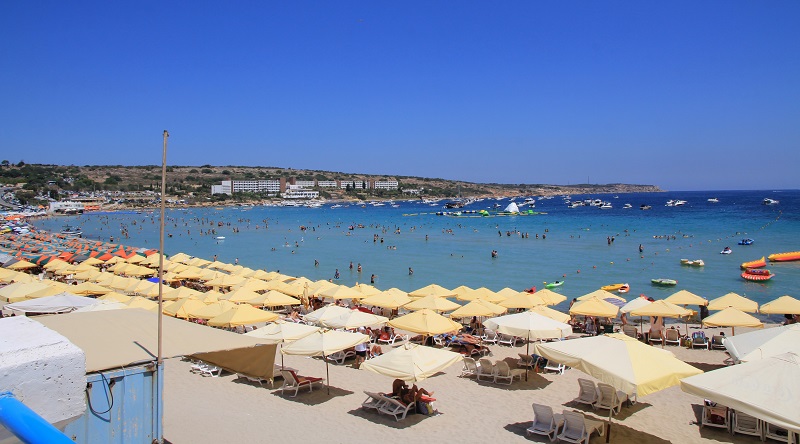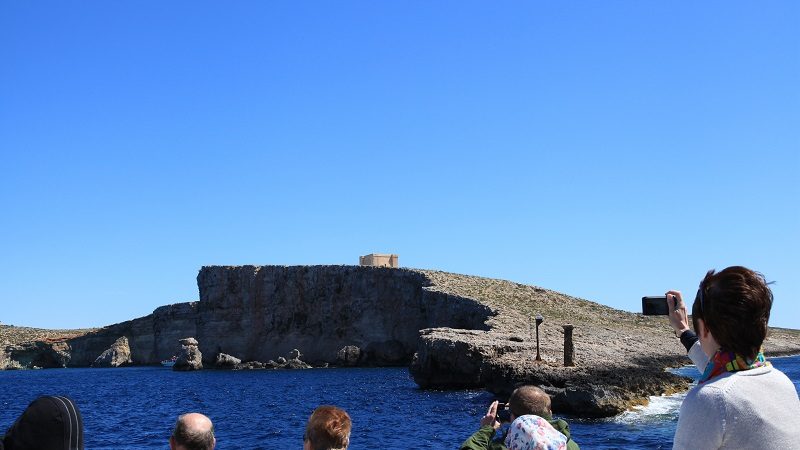Chopping down trees, pouring concrete straight into the sea, sewage problems… none of it endears Malta to visitors. And beyond these environmental problems, the ‘pile-them-high-sell-them-cheap’ approach to tourism is causing trouble of its own, leading to overcrowding at key attractions, and putting pressure on infrastructure. Mass tourism has sustained Malta for 50 years, but it is killing the goose that laid the tourism egg.
Mizzi in a Tizzy
In a recent report, the EU said of Malta: “Investing in making the tourism sector more sustainable is a double win: less environmental pressure and a more attractive tourist destination”.
That’s easy to say but tricky to do, especially when you have Konrad Mizzi as the Minister for Tourism. Mizzi has been so busy burying his recent ‘investments’ in Panama, there’s been no time for him to ‘Make Tourism Great Again’.
We have weasel words on the government’s tourism website, but little action on the ground, unless you count the ‘environmental contribution fee’. That should be going to “upgrade and embellish the local infrastructure in touristic areas” which sounds suspiciously like more building, rather than meaningful environmental protection.
Busman’s Holiday
There are some obvious places to start when it comes to sustainable tourism. Public transport gets a bad rap but roads cannot remain clogged with cars. Another small island, Bermuda, took the initiative to ban car rentals and (because it’s not enough just to bash the tourists), limit every residential household to one vehicle, which is heavily taxed. This has kept their traffic flowing, filled the buses and improved the tourist experience.
25% of visitors on TripAdvisor rated the Blue Lagoon as ‘terrible, poor or average’
Comino Courage
Comino is routinely abused. The Malta Tourism Authority (MTA) loves to slap it on its marketing material, but the authorities do little to protect it. This car-free island has got eco-tourism written all over it, if only the Minister could see the garigue for the hordes of tourists.
Twenty-five per cent of visitors on TripAdvisor rated the Blue Lagoon as ‘terrible, poor or average’. That is deeply dispiriting; nearly a quarter of people don’t enjoy this gorgeous attraction because it is so badly managed.
The solutions are obvious: ban the sunbeds and tacky food stands, charge a fee to visit the Blue Lagoon which actually goes to protecting the unique habitat there, and limit the numbers of visitors with a quota, as happens at the Hypogeum. Rather than deterring people, this will make visitors appreciate getting a ‘spot’ to visit the island and improve the experience when they arrive.

By Karelj [GFDL (http://www.gnu.org/copyleft/fdl.html) or CC BY-SA 3.0 (https://creativecommons.org/licenses/by-sa/3.0)], from Wikimedia Commons
Mass Mayhem
Attracting low-spending, mass tourism has been Malta’s mantra for so long, that change will be hard. The Maltese Islands are consistently one the cheapest package destinations when you leaf through the travel section of European newspapers. Yet, the strategy of welcoming ever-higher tourist arrivals, regardless of per-head income, has a cost for residents. It also affects the unique heritage and appeal of Malta, leading to diminishing returns.
Venice is a perfect example of this trajectory. Locals have all but left the city as thousands of cruise ship passengers flood in daily, spending little per person but putting unbearable pressure on this romantic location.
Meanwhile, destinations like Tuscany, Bordeaux and the Seychelles are getting it right by keeping prices high while providing a highly desirable, quality product through culinary and rural tourism, or top-end resorts.
Overbooked and Underwhelming
Elizabeth Becker, author of Overbooked, argues that only governments can control runaway tourism. Real control means preventing ludicrous hotel developments in inappropriate places, and imposing quotas and fees on the most popular places, while supporting niche tourism products that are unique to Malta. If tourism here is going to be sustainable, that is the future.












